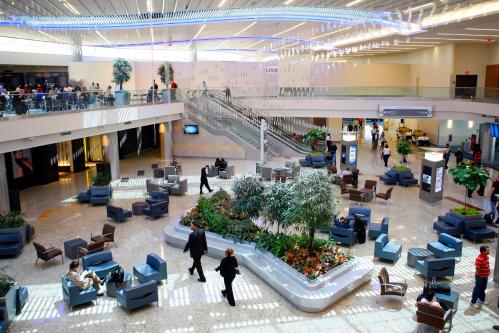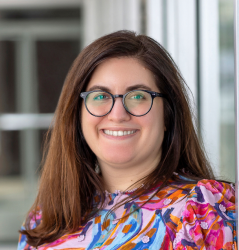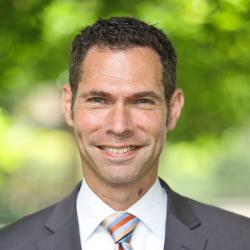Earlier this year, Atomation, a small company in Israel’s “Silicon Wadi” high-tech entrepreneurial community, planted roots in St. Louis, Missouri. Compared to default tech hubs like the Bay Area or Boston, St. Louis may not have been an obvious U.S. headquarters choice for a start-up that shares real estate with Google in a downtown Tel Aviv skyscraper. But Atomation isn’t alone in gravitating to the Gateway City: five Israeli companies recently announced arrivals, thanks in part to GlobalSTL, a local initiative betting that engaging globally in a targeted way can continue to fuel the region’s entrepreneurial and economic resurgence.
St. Louis fits into a category of metros that Brookings defined last year as “American Middleweights” in the global economy, balancing slower growth and weaker traded sectors with skilled talent and innovative universities. For decades, it was the headquarters for Trans-World Airlines, McDonnell Douglas, Ralston Purina, and other iconic firms. But a series of mergers and acquisitions in the late 1990s and early 2000s disrupted this model and forced the region to grapple with how it could continue to prosper once its major corporations were gone.
Reigniting entrepreneurship quickly emerged as a priority. Regional leaders invested in new collaborations and programs to boost commercialization from the region’s powerhouse research universities, and keep entrepreneurial students and scientists from taking their ideas to other tech and medical hubs. A major contributor was BioSTL, a new regional collaboration of civic, business, and academic stakeholders to grow local innovation and entrepreneurship in medical and plant sciences.
The GlobalSTL initiative expands on those internally-focused BioSTL efforts to recognize international opportunities. Rather than pure business attraction, it targets innovative global start-ups and scale-ups in complementary industries and markets to fit the St. Louis ecosystem, as well as benefit local firms by injecting innovation or expertise. It started with traditional BioSTL sectors of agriculture, food technology, and health care, extending to emerging cluster strengths in cybersecurity, fintech, and defense. (St. Louis, led by the St. Louis Economic Development Partnership, has also worked with Brookings through the Global Cities Initiative to develop broader regional strategies that better connect firms to export opportunities and attract foreign investment).
With limited resources to tap an enormous international marketplace, GlobalSTL initially prioritized Israeli firms, based on several factors. For example, GlobalSTL considered a particularly strong sector alignment with St. Louis cluster strengths; a vibrant entrepreneurial ecosystem regularly spinning out new possibilities; a free trade agreement; and an Israeli business model driving entrepreneurs to seek U.S. markets, capital, and corporate relationships. In the first 15 months, the program drew five Israeli firms to St. Louis, with around 100 more in various stages of the pipeline.
“The idea is that it’s a win for the St. Louis company by providing access to cutting-edge technology to solve a problem, a win for the overseas company by providing access to major customers and partners in North America, and then we leverage that win-win into a permanent win for St. Louis by creating jobs and bringing economic activity into the ecosystem,” explains Donn Rubin, BioSTL’s president and CEO.
Locating in St. Louis came with several opportunities for Atomation, an entrant in the increasingly popular field of “internet-of-things” technologies. The company is partnering with regional utility Ameren to apply its sensors to utility poles and has also formed a similar deal with a local plumbing company. Both give local firms access to innovative global technology.
St. Louis leaders are betting their “secret sauce” of access, attention, and nurturing will raise the global profile and assets of a region that is not the typical coastal choice for U.S. entry by international firms. Combining a highly-focused international market play to accelerate the successes of its local entrepreneurship and sectoral growth strategy may offer a template for other American Middleweights to move up a division.







Commentary
In St. Louis, finding a path to success for an American Middleweight in the global economy
May 5, 2017